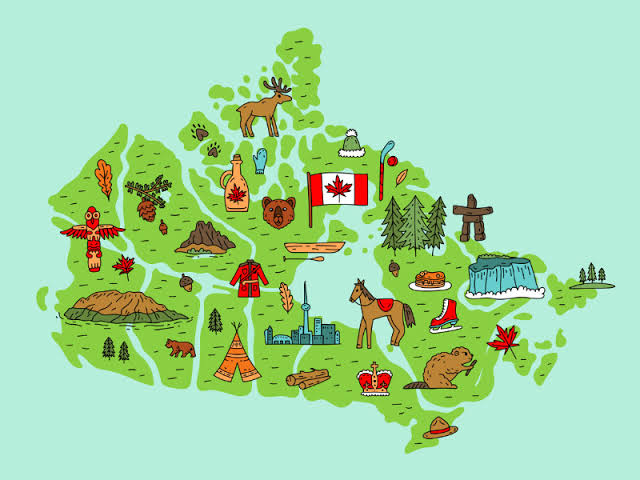For newcomers to Canada, cultural competence is more than a soft skill—it is essential for success in a diverse society. Canada has many different cultures, with over 20% of people born outside the country. This diversity brings both chances and challenges for immigrants. Adapting means more than just learning English or French; it also means understanding the unspoken cultural rules and ways people live, work, and interact in Canada.
Developing cultural competence allows newcomers to avoid misunderstandings, form stronger relationships, and participate more fully in the social, professional, and civic life of their new country. It also promotes greater confidence, reduces culture shock, and empowers newcomers to contribute meaningfully to their communities.
Understanding Cultural Competence
Cultural competence is the ability to interact respectfully and effectively with people from different cultures, backgrounds, and belief systems. It involves more than tolerance—it requires awareness, sensitivity, openness, and the willingness to learn. In the Canadian context, it means recognizing Indigenous cultures, immigrant diversity, bilingualism, and a variety of global traditions that coexist side-by-side.
Key elements of cultural competence include:
- Self-awareness: Recognizing your own cultural assumptions and biases
- Cultural knowledge: Gaining information about other cultures, histories, and traditions
- Communication skills: Navigating different verbal and non-verbal styles
- Adaptability: Adjusting behaviors and attitudes in multicultural settings
- Empathy and respect: Honoring different values, perspectives, and lifestyles
Why It Matters for Newcomers
1. Building Stronger Relationships
In Canada, everyday interactions are often influenced by cultural context—whether in casual friendships, professional settings, or service encounters. By understanding values such as politeness, punctuality, personal space, or indirect communication, newcomers can better integrate and form meaningful connections.
For instance, making eye contact or giving a firm handshake is often seen as a sign of confidence, while interrupting someone in conversation may be perceived as disrespectful. Knowing these norms helps avoid unintentional offenses and builds mutual trust and understanding.
2. Improving Workplace Success
Canadian workplaces are governed not just by labor laws but also by cultural expectations. A newcomer who learns how meetings are structured, how decisions are made, and how hierarchy is perceived can quickly become more effective in their role.
Key workplace cultural elements to understand include:
- Team collaboration: Emphasis on inclusivity, shared responsibilities, and consensus
- Workplace etiquette: Politeness, professionalism, and time management are highly valued
- Feedback styles: Often indirect or constructive, especially in multicultural teams
Cultural competence can also open up more job opportunities and increase chances for promotion, as employers increasingly value soft skills and the ability to work in diverse teams.
3. Navigating Services and Institutions
Newcomers rely on various services, including healthcare, education, housing, and legal systems. Each of these sectors operates within a specific cultural framework. For example, understanding how to book a doctor’s appointment, communicate with teachers, or engage with local law enforcement requires some knowledge of how these systems function in Canadian society.
Moreover, culturally competent individuals are more confident in asking questions, advocating for themselves, and asserting their rights within these systems. It reduces confusion and leads to better outcomes in accessing critical services.
4. Reducing Culture Shock and Isolation
One of the biggest emotional hurdles for immigrants is culture shock—a feeling of disorientation when adjusting to a new way of life. This often leads to loneliness, confusion, or withdrawal. Cultural competence helps buffer this experience by enabling newcomers to make sense of unfamiliar behaviors and expectations.
Through learning, observing, and engaging, individuals can bridge the gap between old and new cultures, maintaining their heritage while becoming active members of their new society. This dual perspective strengthens identity, belonging, and mental well-being.
Strategies for Developing Cultural Competence
To become culturally competent, newcomers can take proactive steps such as:
- Participating in cross-cultural training or settlement workshops
- Engaging with community events, libraries, and cultural festivals
- Volunteering in multicultural settings
- Joining mentorship or newcomer support programs
- Seeking feedback from trusted peers or colleagues
- Reading about Canadian values, history, and Indigenous perspectives
The government, schools, and nonprofit organizations offer many resources specifically designed to help newcomers gain cultural understanding and confidence in social integration.
Encouraging Cultural Exchange and Mutual Learning
While newcomers are encouraged to adapt, cultural competence is not a one-sided process. Canadian society also benefits from the traditions, languages, and ideas that immigrants bring with them. Mutual cultural learning—where newcomers and long-time residents exchange perspectives—leads to more inclusive and vibrant communities.
By promoting dialogue and collaboration, both sides contribute to a shared Canadian identity rooted in respect, diversity, and collective progress.
Conclusion
Cultural competence is an essential life skill for newcomers to Canada. It empowers individuals to navigate the complex social landscape of their new home with confidence and sensitivity. From forming friendships and succeeding at work to accessing services and feeling a sense of belonging, culturally competent newcomers are better equipped to thrive and contribute.
In a country as diverse and inclusive as Canada, the ability to understand and embrace cultural differences is not just beneficial—it’s foundational to a richer, more connected future for all.




Nice